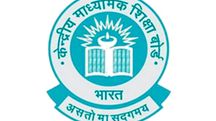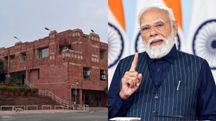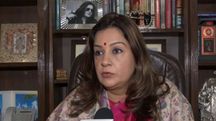Centre launches ‘Bare Necessities Index’ to measure progress in delivery of bare necessities
Centre launches ‘Bare Necessities Index’ to measure progress in delivery of bare necessities
 bare necessities index
bare necessities index
NEW DELHI: The Central Government as part of the Economy survey 2020-21 ahead of the Budget on February 1, launched a composite index called the 'Bare Necessities Index' in order to measure the quality of housing, toilet, drinking water, and clean cooking fuel. The Bare Necessities Index has been introduced to measure the progress in the delivery of "the bare necessities."
The BNI index will measure access to "the bare necessities" for households in rural areas, urban areas and at an all-India level.
These necessities are measured using 26 comparable indicators on five dimensions viz., water, sanitation, housing, micro-environment, and other facilities.
The indicators will capture the availability and quality of housing, access to bathroom, kitchen, toilet, drinking water, waste discharge facilities, clean cooking fuel and disease free environment, among other things.
According to the Economy Survey the access to “the bare necessities” has improved across all States in the country in 2018 comapred to 2012.
Access to bare necessities is the highest in the states such as Kerala, Punjab, Haryana and Gujarat while it is the lowest in Odisha, Jharkhand, West Bengal and Tripura.
“InterState disparities in the access to “the bare necessities” have declined in 2018 when compared to 2012 across rural and urban areas. This is because the States where the level of access to “the bare necessities” was low in 2012 have gained relatively more between 2012 and 2018. Access to “the bare necessities” has improved disproportionately more for the poorest households when compared to the richest households across rural and urban areas,” the Economic Survey noted.
ALSO READ: NATIONAL: Anna Hazare to go on hunger strike in his village from tomorrow
Schemes such as Swachh Bharat Mission (SBM), National Rural Drinking Water Programme (NRDWP), Pradhan Mantri Awaas Yojana (PMAY), Saubhagya, and Ujjwala Yojana have been designed to deliver these necessities.
“These Schemes were equipped with new features such as the use of technology, real-time monitoring, geo-tagging of assets, social audit, embedded digital flow of information, and direct benefit transfers wherever possible,” it says.
Faced with unprecedented uncertainty at the onset of the pandemic, India focused on saving lives and livelihoods by its willingness to take short-term pain for long-term gain, the Survey pointed out.
India has been able to effectively manage both the spread of COVID-19 and the fatalities, the Survey emphasized.
Copyright©2026 Living Media India Limited. For reprint rights: Syndications Today









